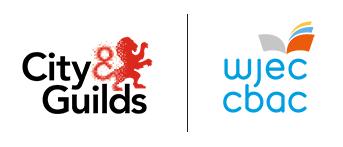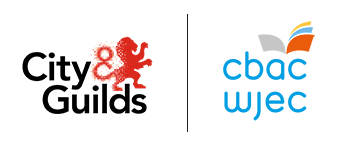




There is a range of agencies and workers that support the health, well-being, learning and development of children. Their purpose is to ensure that children, young people and families receive the best possible support.
Paediatrician – a doctor specialising in childcare. Diagnoses and provides medical care for children from birth.
Play practitioner – uses play to help children consider their feelings and experiences.
Health visitor – a qualified nurse who has received additional training. Carries out routine developmental examinations and provides parents with advice on keeping themselves and their baby healthy.
Physiotherapist – works directly with children and their parents. Focuses on motor skills, movement and balance. May suggest exercises and movements which will help to strengthen a specific part of the body in order to support movement and increase independence.
Speech and language therapist – treats speech, language and communication impairments and disorders. Provides assessment, treatment and develops personal plans to support children and their families. Also works closely with teachers and other professionals in order to develop individual treatment programmes.
Occupational therapist – encourages independence and life skills, for example getting dressed, eating and taking care of personal hygiene. May assess fine motor skills and suggest specialist tools.
Educational psychologist – provides medical and learning support for individuals and groups of children. Offers a programme of support which helps children or young people experiencing difficulties with access to learning. These difficulties may include behavioural, social or emotional needs.
GP – general practitioner who treats all family members.
Clinical psychologist – focuses on the emotional, social and intellectual development of children.
AEN advisory teacher – a specialist teacher who visits children and offers direct teaching and support.
Education welfare officer – will consider children with irregular school attendance. Has regard for the well-being of children and young people.
Children and Family Court Advisory and Support Service (CAFCASS Cymru) – offers advice and support for children and young people, ensuring that their voice is heard in a court of law.
NSPCC – The National Society for the Prevention of Cruelty to Children – an organisation which protects children and young people and prevents abuse. Offers a 24 hour service which listens to the voice of children and also supports families.
Mae amrywiaeth o asiantaethau a gweithwyr sy’n cefnogi iechyd, llesiant dysgu a datblygiad plant. Eu pwrpas yw sicrhau’r cymorth a’r gefnogaeth orau posib i blant, pobl ifanc a’u teuluoedd.
Paediatregydd – meddyg sy’n arbenigo mewn gofal plant. Maent yn cynnig diagnosis a gofal meddygol ar gyfer plant o’r amser cânt eu geni.
Ymarferydd chwarae – byddant yn defnyddio chwarae er mwyn helpu plant i ystyried eu teimladau a'u profiadau.
Ymwelydd iechyd – nyrs gymwys sydd wedi cael hyfforddiant ychwanegol. Yn cynnal archwiliadau datblygiadol arferol ac yn cynnig cyngor i rieni am sut i gadw eu hunain a’u babi’n iach.
Ffisiotherapydd – gweithio’n uniongyrchol gyda phlant a’u rhieni. Yn canolbwyntio ar sgiliau echddygol, symud a chydbwysedd. Gall awgrymu ymarferion a symudiadau a fydd yn gymorth i gryfhau ardal benodol o’r corff i helpu symudedd a chynyddu annibyniaeth.
Therapydd lleferydd ac iaith – byddant yn trin diffygion ac anhwylderau iaith, lleferydd a chyfathrebu. Maent yn asesu, trin a datblygu cynlluniau personol i gefnogi plant a’u teuluoedd. Maen nhw hefyd yn gweithio’n agos gydag athrawon a gweithwyr proffesiynol eraill i ddatblygu rhaglenni triniaeth unigol.
Therapydd galwedigaethol – byddant yn annog annibyniaeth a sgiliau bywyd, er enghraifft gwisgo, bwyta a gofalu am hylendid personol. Gallant asesu sgiliau echddygol mân ac awgrymu offer arbenigol.
Seicolegydd addysg – byddant yn darparu cymorth meddygol a dysgu ar gyfer unigolion a grwpiau o blant. Maent yn cynnig rhaglen gefnogaeth sy’n helpu plant neu bobl ifanc sydd ag anawsterau gyda'u mynediad i ddysgu. Gallai'r anawsterau hyn gynnwys anghenion ymddygiadol, cymdeithasol neu emosiynol.
Meddyg teulu – ymarferwr cyffredinol sy'n trin holl aelodau'r teulu.
Seicolegydd clinigol – byddant yn canolbwyntio ar ddatblygiad emosiynol, cymdeithasol a deallusol y plant.
Athro/Athrawes cyngor anghenion addysgol ychwanegol – athro/athrawes arbenigol sy'n ymweld â phlant ac sy'n cynnig cymorth ac addysgu uniongyrchol.
Swyddog lles addysg – bydd yn ystyried plant y mae eu presenoldeb yn yr ysgol yn afreolaidd. Bydd yn ystyried lles plant a phobl ifanc.
Gwasanaeth Cyngor a Chefnogaeth Llys i Blant a’u Teuluoedd – CAFCASS Cymru (Children and Family Court Advisory and Support Service) – maent yn cynnig cymorth a chyngor i blant a phobl ifanc gan sicrhau bod eu llais yn cael eu clywed mewn llys barn.
Cymdeithas genedlaethol er atal creulondeb i blant (NSPCC – The National Society for the Prevention of Cruelty to Children) – sefydliad sy’n diogelu plant a phobl ifanc ac yn atal camdriniaeth. Cynigir gwasanaeth 24 awr y dydd sydd yn gwrando ar lais plant a hefyd yn cynnig cefnogaeth i deuluoedd.
Drag the agencies or professionals in the left-hand column to the correct area in the table, according to the type of support they provide.
Llusgwch yr asiantaethau neu weithiwr proffesiynol sydd yn y golofn ar y chwith i’r man cywir yn y tabl yn ôl y math o gefnogaeth a gynigir ganddynt.
Warning! This resource is not optimised for use on mobile devices.
Rhybudd! Ni ellir defnyddio’r adnodd yma ar ffonau symudol neu dabled.
Well done. You have matched them all correctly.
Da iawn. Rydych wedi paru pob un yn gywir.
|
Agencies and professionals
Asiantaethau a gweithwyr proffesiynol
|
Type of support
Math o gefnogaeth
|
Correct answers
Atebion cywir
|
|---|